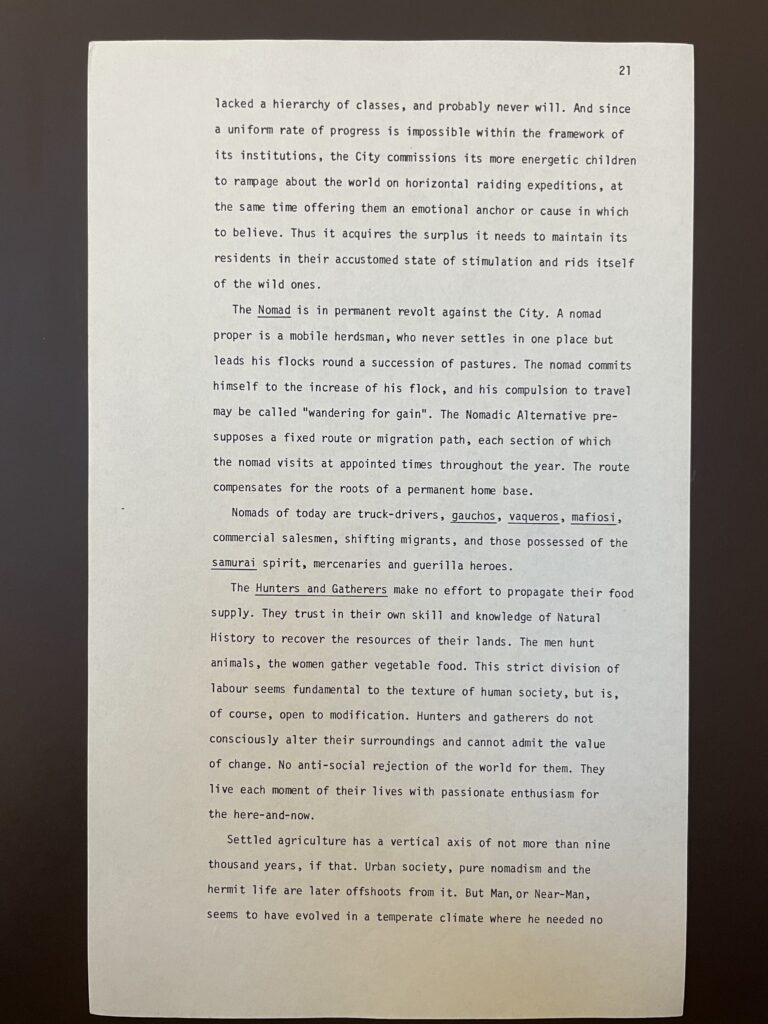The Nomadic Alternative – Page 21
The Nomadic Alternative
Page 21
lacked a hierarchy of classes, and probably never will. And since
a uniform rate of progress is impossible within the framework of
its institutions, the City commissions its more energetic children
to rampage about the world on horizontal raiding expeditions, at
the same time offering them an emotional anchor or cause in which
to believe. Thus it acquires the surplus it needs to maintain its
residents in their accustomed state of stimulation and rids itself
of the wild ones.
The Nomad is in permanent revolt against the City. A nomad
proper is a mobile herdsman, who never settles in one place but
leads his flocks round a succession of pastures. The nomad commits
himself to the increase of his flock, and his compulsion to travel
may be called “wandering for gain”. The Nomadic Alternative pre-
supposes a fixed route or migration path, each section of which
the nomad visits at appointed times throughout the year. The route
compensates for the roots of a permanent home base.
Nomads of today are truck-drivers, gauchos, vaqueros, mafiosi,
commercial salesmen, shifting migrants, and those possessed of the
samurai spirit, mercenaries and guerilla heroes.
The Hunters and Gatherers make no effort to propagate their food
supply. They trust in their own skill and knowledge of Natural
History to recover the resources of their lands. The men hunt
animals, the women gather vegetable food. This strict division of
labour seems fundamental to the texture of human society, but is,
of course, open to modification. Hunters and gatherers do not
consciously alter their surroundings and cannot admit the value
of change. No anti-social rejection of the world for them. They
live each moment of their lives with passionate enthusiasm for
the here-and-now.
Settled agriculture has a vertical axis of not more than nine
thousand years, if that. Urban society, pure nomadism and the
hermit life are later offshoots from it. But Man, or Near-Man,
seems to have evolved in a temperate climate where he needed no
Editor's Note: This text has been transcribed automatically and likely has errors. if you would like to contribute by submitting a corrected transcription.
